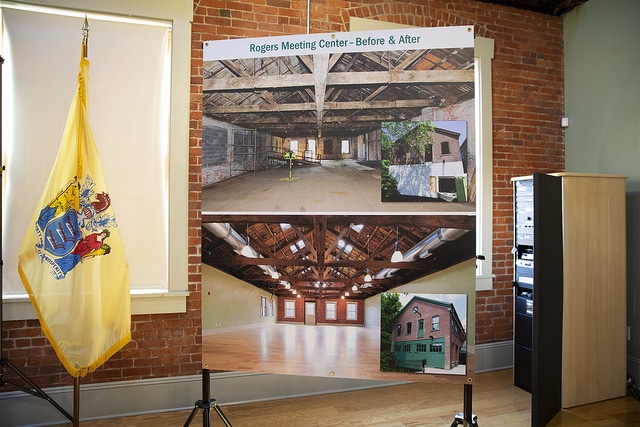Murphy pushes historic-tax-credit proposal in Paterson

Gov. Phil Murphy doubled down on a vision for a $20 million historic preservation tax credit program aimed at redeveloping and repurposing abandoned historic urban properties.
The tax credit program is one of five economic incentive proposals Murphy unveiled in October 2018 which his administration envisions as replacements for the two existing economic incentive programs—the Grow New Jersey tax breaks and the Economic Redevelopment and Growth gap financing program, both of which sunset in July.
“Historic preservation tax credits have helped other states preserve and utilize their historic buildings,” Murphy said at a Friday afternoon press conference in Paterson. “These beautiful structures are often hidden in plain sight and are waiting for the right investor. We are here to help with that.”
The tax break awards would account for up to 16 percent of the project expenses, or up to 20 percent for projects involving affordable housing or collaborative or incubator workspaces. Awards would be capped at $4 million a project and developers would not see any of the tax breaks until they actually complete the project.
A similarly-aimed proposal in the state Legislature, Senate Bill 2031, would not cap the tax credit for businesses and developers, but cap it at $25,000 over a 10-year period for homeowners
S2031 calls for allocating $15 million to the program for the first fiscal year, $25 million for the second year, $40 million in the third year and $50 million from then on out, capped at 25 percent of the project costs.
Murphy’s proposed legislation allows for the recipient to sell the tax credits — a little-known and controversial component of Grow NJ, which his administration has criticized as undermining the success of the tax breaks.
Murphy has knocked the Grow NJ and ERG programs, often pointing to a January audit from the state comptroller which suggested the state had little oversight into $11 billion of tax credits it awarded between 2005 and 2017, and could not determine whether recipients delivered on promise economic activity.
Critics of the audit, such as Senate President Stephen Sweeney, D-3rd District, and senior Murphy officials in the Economic Development Authority have criticized the methodology of the audit, arguing it mainly looked at tax credit programs no longer accepting applications and essentially no longer in existence.
Read the full article here.